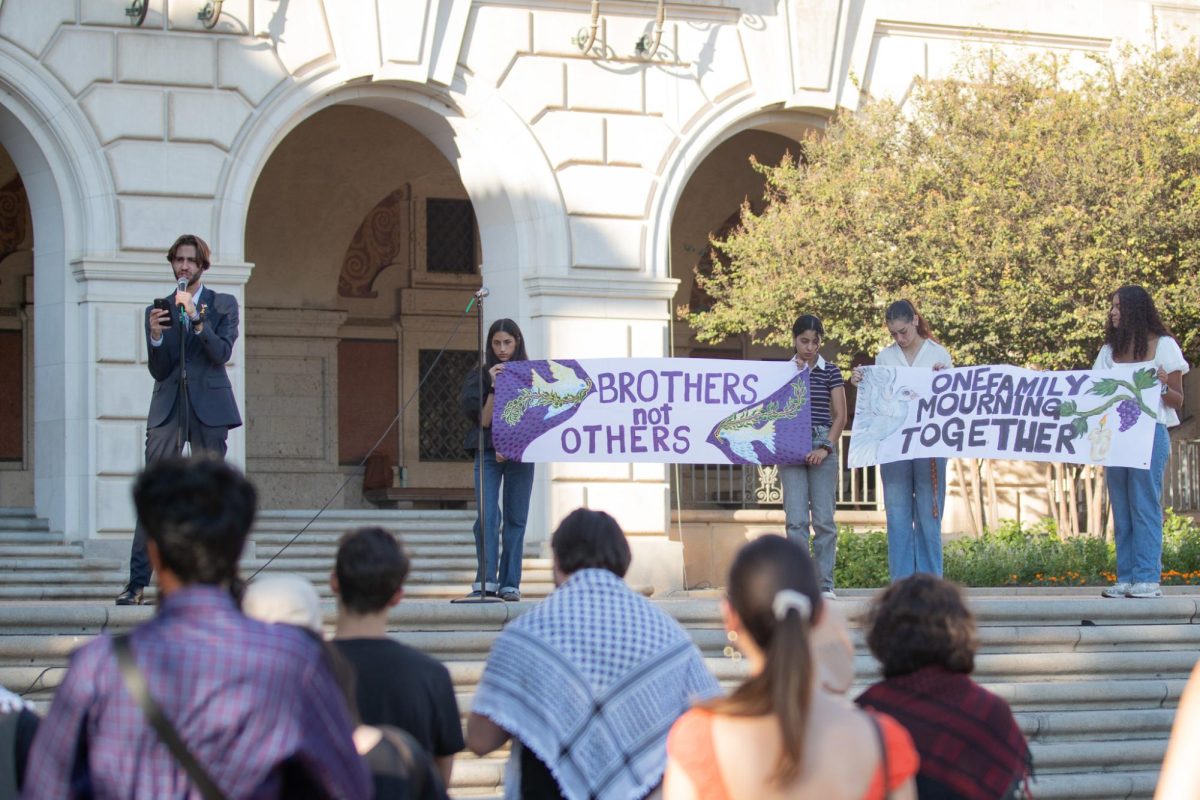UT’s chapter of Atidna International hosted a vigil in front of the UT Tower on Sunday to grieve all innocent lives lost in Israel, Palestine and Lebanon in the last year of violence.
Last year’s Oct. 7 Hamas attacks killed nearly 1,200 Israeli citizens, and Israel’s subsequent military invasion of Gaza has killed over 42,000 Palestinians, according to the Gaza Health Ministry. Israel’s recent invasion of Lebanon has killed over 2,000 Lebanese people.
Elijah Kahlenberg, president of Atidna, announced in his opening remarks he would step down as the president of the UT chapter but remain head of Atidna International. He emphasized his continued commitment to dialogue between Arab, Muslim, Jewish and Israeli students.
“We are living proof that peace and unity can be achieved,” Kahlenberg said. “Thank you all for proving to me and the world that bloodshed and tribalization are not the only outcomes of grief.”
Around 40 people attended the vigil, which featured a joint speech from peace activists Aziz Abu Sarah, a Palestinian who grew up in Jerusalem, and Maoz Inon, an Israeli who lost his parents in the Oct. 7 Hamas attacks. The pair have called for peace and reconciliation for the last year.
Inon said he began advocating for Palestinians in Gaza in the days following Oct. 7 because he didn’t want “revenge” for his parents’ death.
“By (avenging), we won’t bring them back, and we’ll just escalate the violence, the cycle of bloodshed (and) of hate and fear that has been going on for a century,” Inon said.
When Abu Sarah was 10 years old, Israeli soldiers killed his brother. For the next eight years, he was very active in politics in the West Bank, rising up the ranks of the Palestinian Youth Movement in Jerusalem. He said he refused to learn Hebrew because he thought it was “the language of the enemy.”
His first interactions with Israelis and Jewish people as everyday people — rather than soldiers — happened when he began studying Hebrew at 18. After these interactions, he said his perspective changed.
“At that moment, realizing that I (was) being enslaved, I decided that I want to take the initiative, and I want to be free,” Abu Sarah said.
Clark White, an anthropology and art history freshman, happened to be walking by the UT Tower when he saw the vigil. He said he found the event “inspiring” in light of the tension surrounding the conversation about Israel and Palestine on campus.
“It was really nice to see people talking about it after the treatment of protests last semester,” White said. “I wasn’t sure if that would diminish the amount of talking and discourse around the subject at UT.”
Inon and Abu Sarah emphasized their principal messages of forgiveness and unity. Abu Sarah said his Palestinian identity and Inon’s Israeli identity do not put them on opposite “sides.”
“If you must divide us, then you divide us in this way: it’s those who believe in justice, those who believe in equality, those who believe in dignity, those who believe in living together and those who don’t yet,” Abu Sarah said. “Our mission is to convince those who don’t yet to join us.”













